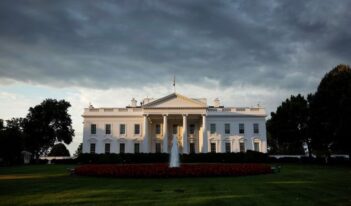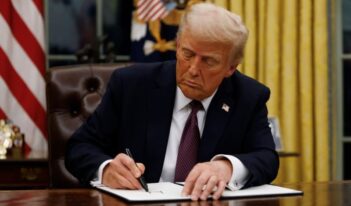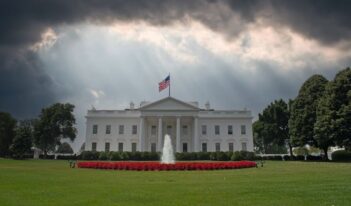
Former White House experts evaluate the Obama Administration’s regulatory performance.
On the eve of President Obama’s State of the Union address, the Penn Program on Regulation hosted a panel discussion at the Wharton School assessing the Obama Administration’s regulatory record to date. The panel included three former appointed White House regulatory advisors from both Democratic and Republican Administrations.

Jim Tozzi (Reagan Administration), Sally Katzen (Clinton Administration), Susan Dudley (Bush Administration) (pictured left to right)
Just like any President finds upon assuming office, last January President Obama confronted a concentration of new regulations that had been pushed through in the closing weeks of his predecessor’s administration. The Obama Administration, like past administrations, immediately took action to stop or delay new regulations that were still in the pipeline.
In addition to halting or reviewing these so-called midnight regulations, President Obama issued a memo last January affirming the longstanding practice of White House review of new regulations. President Reagan first institutionalized this review process within the White House Office of Information and Regulatory Affairs (OIRA), a division of the Office of Management and Budget (OMB) where regulatory review authority has remained in every administration since. The current process is governed by Executive Order 12,866 issued by President Clinton and retained by President Bush.
Although Obama affirmed that “centralized review is both legitimate and appropriate as a means of promoting regulatory goals,” he also called for his OMB Director to review the existing White House review process and “to produce within 100 days a set of recommendations for a new Executive Order on Federal regulatory review.” OIRA then took the rare, if not altogether unprecedented, step of soliciting public comment on possible changes to the executive order that governs the regulatory review process. More than 175 comments were submitted and posted on-line, but to date the White House has not announced any recommendations.
On the same day he ordered his review of regulatory review, President Obama revoked Executive Order 13,221. In his second term, President Bush had issued Executive Order 13,221 to make some relatively modest changes to President Clinton’s Executive Order 12,866. Among other things, Executive Order 13,221 made clear that, in addition to having their regulatory proposals reviewed, agencies also needed to submit proposals for certain non-binding, guidance documents for review. Although President Obama revoked Executive Order 13,221, his OMB Director nevertheless in March, 2009, issued a memo making clear to agencies that they still must submit significant guidance documents for OIRA review.
To date, no other changes to the White House regulatory review process have been announced. Having affirmed the fundamental process of centralized White House review, and having operated under the rubric of Executive Order 12,866 for a full year, the Obama Administration may well have concluded that the current process works sufficiently well to achieve the President’s objectives.
The Penn panel, introduced by PPR Executive Director Adam Finkel and moderated by PPR Director Cary Coglianese, featured academic and NGO commentary as well as perspectives from three former heads of OIRA. Panel members included:
· Susan E. Dudley, immediate past OIRA Administrator of the Office of Information and Regulatory Affairs (OIRA) and current director of the Regulatory Studies Center at George Washington University
· Sally Katzen, former OIRA Administrator under President Clinton and currently the Executive Managing Director of the Podesta Group
· Jeff Ruch, Executive Director of Public Employees for Environmental Responsibility (PEER)
· Rena Steinzor, Professor of Law at the University of Maryland and President of the Center for Progressive Refor
· Jim Tozzi, Co-Founder of the Center for Regulatory Effectiveness and former Assistant Director of the Office of Management & Budget under President Reagan.
The photograph of the Wharton School is used unaltered under a Creative Commons license.



